Benefits of an Activated Charcoal Cabin Air Filter in Car
Have you started to notice that the air inside your car has taken on a weird odor or has even started to activate allergic symptoms in your body? Every car will contain an air filter that will be responsible for filtering out the air in the small confined space of the vehicle. However, are these air filters maintained and switched out, and are you using the best cabin air filter for your car? There are a variety of different types of cabin air filters, depending on the type of car you drive and the capability of the cabin filter to filter out the air inside this car’s air space. Often times we will not have a hand in picking out the cabin air filter we use in our car’s as they will be placed in there by mechanics that do your regular maintenance oil change, but if you notice that your car’s indoor air quality is compromised, it may be time to look into alternative cabin air filters such as activated charcoal filters for your car.
When it comes to the impact that your car’s cabin air filter will have on the vehicle, many people will be less concerned as the performance of the car is not directly affected by this component of the vehicle – which is one of the most important things to a vehicle owner. However, recently as there has been more information surrounding the issues with indoor air quality and human health, this has led to the growing desire for people to maintain clean indoor air quality in all their indoor spaces including their cars. Selecting the most beneficial cabin air filter can be hard but when it comes to the capabilities of these cabin air filters you will want to be sure that they filter a large volume of various pollutants from the air.
In this article we are going to learn more about the benefits of an activated charcoal cabin air filter in a car, what and how a cabin air filter works, and if there are better cabin air filter types to use inside of your personal vehicle.
What is a Cabin Filter
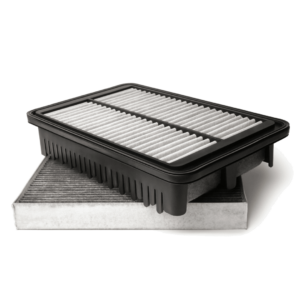 When discussing a cabin air filter, it will very often be mixed up with the car’s engine air filter – which are two completely separate air filters used inside of a car. The car’s engine air filter is designed to ensure that clean air gets to the engine, which is a key function in the combustion process. Whereas the cabin air filter is made specifically for cleaning the air that comes into the vehicle that a driver breathes in and will work by removing pollutants/contaminants from the air. The inside air of your car can accumulate a variety of airborne pollutants within the space that can include dirt, dust, smoke, smog, pollen, mold spores, and even exhaust gases. These pollutants will easily enter into the air of your car through the HVAC system and allow for the various pollutants to easily float throughout the recirculated air of the vehicle.
When discussing a cabin air filter, it will very often be mixed up with the car’s engine air filter – which are two completely separate air filters used inside of a car. The car’s engine air filter is designed to ensure that clean air gets to the engine, which is a key function in the combustion process. Whereas the cabin air filter is made specifically for cleaning the air that comes into the vehicle that a driver breathes in and will work by removing pollutants/contaminants from the air. The inside air of your car can accumulate a variety of airborne pollutants within the space that can include dirt, dust, smoke, smog, pollen, mold spores, and even exhaust gases. These pollutants will easily enter into the air of your car through the HVAC system and allow for the various pollutants to easily float throughout the recirculated air of the vehicle.
The accumulation of these various contaminants in the confined air space of your car can lead to potential health problems to those individuals that are exposed to this tainted indoor air for a longer period of time. Many of these pollutants will lead to symptoms that can range from allergic or asthmatic symptoms in a susceptible individual. Thus, the creation of the cabin filter was designed that strategically is placed inside of these cars to filter the pollutants from these indoor air spaces.
What Does a Cabin Air Filter Do
According to the EPA (Environmental Protection Agency), there have been studies that they have conducted that demonstrated that the levels of indoor pollutants may be two to five times – and occasionally 100 times – higher than outdoor levels. Although most people will focus on providing indoor air quality solutions to their indoor environments like their homes or offices, a car is also another important space that you will want to clean the indoor air. Car manufacturers thought of this need inside of vehicles and thus that is why there are cabin air filters installed in these vehicles.
As we discussed above, a cabin air filter will work to keep dust, dirt, pollen, bacteria, and exhaust gases from entering inside of the HVAC system of your car. In addition, these cabin filters will also prevent bugs, leaves, and other debris from clogging up the cabin filter system. Ultimately, having clean air inside of your car is vital and that cabin air filter will specifically work to keep this air continually clean so that the occupants in the vehicle do not experience health effects when present in this space.
How Long Do Car Air Filters Last
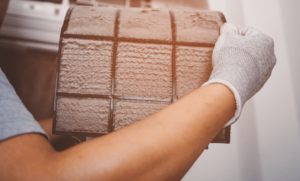 Have you started to notice that the air inside of your is getting clogged or dirty – with a distinct smell that is lingering in the air of the vehicle? When you begin to notice that your car’s air is taking on these various characteristics it may be a sign that your car’s air filter needs to be changed. When your air filter reaches poor conditions (which may be hard to determine) it can cause the internal ducts of the engine to start to deteriorate and this can affect both how fast your car can go and make your exhaust smoke blacker or thicker.
Have you started to notice that the air inside of your is getting clogged or dirty – with a distinct smell that is lingering in the air of the vehicle? When you begin to notice that your car’s air is taking on these various characteristics it may be a sign that your car’s air filter needs to be changed. When your air filter reaches poor conditions (which may be hard to determine) it can cause the internal ducts of the engine to start to deteriorate and this can affect both how fast your car can go and make your exhaust smoke blacker or thicker.
According to My Toyota, they recommend that you change your car’s cabin air filter every 20,000 km (about 12,000 miles) or once a year. However, if you are driving mostly on city streets or dusty roads than it may be necessary to change out the cabin air filter more frequently. If you neglect to change out your cabin’s air filter during the recommended time than you may be provoking damage to your car’s engine, which can be bad for the functioning of the car.
Types of Air Filters for Cars
When it comes to selecting the ideal cabin air filter for your car, there can be multiple filtration capabilities that you are looking for the filter to accomplish in the air such as removing particles such as dust, smoke, and bacteria in the air, while other people may look for additional removal capabilities such as odor removal. The two most commonly used types of air filters for a car will include both a particle cabin filter and an activated cabin carbon filter for odor removal. These two popular types of air filters will each work in specific ways to clean the air of your car and thus it is necessary to understand how each of these air filters will work in your car.
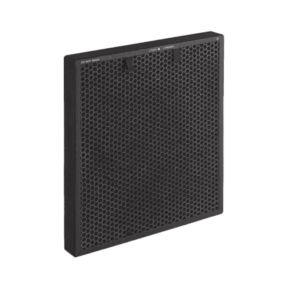 Particle Cabin Filters: Particle dust filters will work specifically to capture particles from the air, including those very small particles that will float in the air of this confined air space. Some of these particle cabin filters will even be able to capture particles as small as 0.3 microns in size, which is smaller than a human hair that is approximately 100 microns in size. Most of these particle cabin filters will handle the removal of most pollen, mold spores, soot, smoke, tire dust, and even bacteria to help improve and clean the indoor air quality of your car.
Particle Cabin Filters: Particle dust filters will work specifically to capture particles from the air, including those very small particles that will float in the air of this confined air space. Some of these particle cabin filters will even be able to capture particles as small as 0.3 microns in size, which is smaller than a human hair that is approximately 100 microns in size. Most of these particle cabin filters will handle the removal of most pollen, mold spores, soot, smoke, tire dust, and even bacteria to help improve and clean the indoor air quality of your car.- Activated Carbon Cabin Air Filter: Combination dust and odor removing filters will provide an additional element to your indoor air space to allow for the reduction or elimination of odors, and one of the most well-known and heavily used of these filters is an activated carbon cabin air filter. Activated carbon cabin air filters will work by removing both particles from the air as well as the ability to absorb harmful gases, fuels, ozone, and carbon monoxide.
How Does a Carbon Filter Work
Many people will wonder what it is that makes a carbon air filter more efficient in pollutant removal that traditional particulate filters in a car’s cabin air filter system, and the reason behind the enhanced capabilities of a carbon filter is its composition. Activated charcoal, also known as activated carbon, is specifically processed to increase its porousness, which in turn will improve its ability to absorb harmful gases and odors from the air. According to Penn State University (PSU), each particle of carbon used in an air filter will provide a larger surface area that will allow for contaminants to have the maximum possible exposure to the active sites with the filter media. The process that carbon air filters will work through is called adsorption, where pollutants in the air can be treated when they are trapped inside the pore structure of the carbon media.
These carbon filters can be used in a variety of products and solutions such as in air conditioning units, exhaust fans, car cabin air filters, and even in water purifications. When the carbon technology is used in these various products the carbon will last in the environments it is placed for an ambiguous amount of time, that will depend on the amount of carbon used in the filters and the conditions in the indoor space.
Benefits of Changing Cabin Air Filter
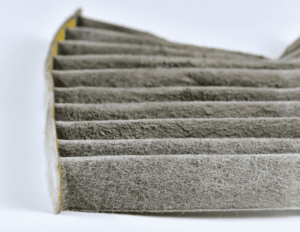 When it comes to changing out your cabin’s air filter, there are many significant benefits that this can provide to both your car, your car’s indoor air quality, and even the health of those occupants in this confined car space. As we have discussed previously, the cabin air filter will influence the car’s indoor air quality, as well as even the functioning of the vehicle. The cabin air filters will be responsible for ensuring your car runs more efficiently including the fuel levels of your car and the exhaust of the vehicle. However, now a days one of the most beneficial functions of a cabin air filter is its reduction of airborne pollutants in the air of your car that may be responsible for causing health effects in those individuals exposed to this air.
When it comes to changing out your cabin’s air filter, there are many significant benefits that this can provide to both your car, your car’s indoor air quality, and even the health of those occupants in this confined car space. As we have discussed previously, the cabin air filter will influence the car’s indoor air quality, as well as even the functioning of the vehicle. The cabin air filters will be responsible for ensuring your car runs more efficiently including the fuel levels of your car and the exhaust of the vehicle. However, now a days one of the most beneficial functions of a cabin air filter is its reduction of airborne pollutants in the air of your car that may be responsible for causing health effects in those individuals exposed to this air.
A dirty, unmaintained cabin air filter in a car can lead to some potential health issues in certain individuals. Depending on the person and their health standing, these various airborne pollutants in a car such as dirt, dust, and other particles can lead to allergies, asthma, and even difficulty breathing in the environment. In addition, odors and terrible smells inside of a car will also be removed through the use of a cabin air filter, specifically an activated charcoal cabin air filter, which will be beneficial to the occupants in the car as well as the overall IAQ of the car’s air space.
Best Cabin Air Filter to Use
Has your cabin air filter been doing an inefficient job of removing those noxious and toxic chemicals and odors from the air that intrude the air of your car? Many of us will use a particulate cabin filter in out car’s cabin air filter system to filter the air in this confined space, however, when it comes to removing odors it will be inefficient. When it comes to removing those odors from the air, it is often recommended to switch and use an activated charcoal cabin air filter that works specifically to absorb odors from the air, but these filters will only collect odors rather than eliminating them like other alternative car air filters will when placed in the car. The risks of carbon air filters are that it will potentially lead to a re-releasing of these odorous compounds and pollutants into the air of your car and this can lead to a compromised indoor air quality. Thus, finding a cabin air filter that will actually work to eliminate noxious and toxic chemicals and odors from the air will be the best option for your car’s air system.
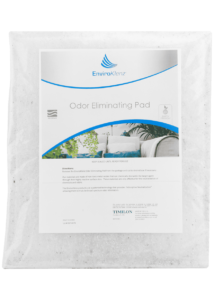 The EnviroKlenz Odor Eliminating Pad is a remarkable odor neutralizing agent that will be placed inside various spaces inside an indoor environment to remove the worst odors imaginable, as well as chemicals from the air. This rapid acting and broad efficacy pad will not use masking agents or fragrances and the product is non-toxic, non-bleaching, or staining. These pads can be simply placed inside of storage containers, boxes, drawers, cabinets, and can even be cut to act as a protective layer inside your car’s air filter. The EnviroKlenz technology that is embedded in this pad will contain a patented earth mineral technology that will work to absorb and neutralize odors and toxins at the chemical source and will work to clean the confined indoor air space of your car.
The EnviroKlenz Odor Eliminating Pad is a remarkable odor neutralizing agent that will be placed inside various spaces inside an indoor environment to remove the worst odors imaginable, as well as chemicals from the air. This rapid acting and broad efficacy pad will not use masking agents or fragrances and the product is non-toxic, non-bleaching, or staining. These pads can be simply placed inside of storage containers, boxes, drawers, cabinets, and can even be cut to act as a protective layer inside your car’s air filter. The EnviroKlenz technology that is embedded in this pad will contain a patented earth mineral technology that will work to absorb and neutralize odors and toxins at the chemical source and will work to clean the confined indoor air space of your car.
Article Sources:
Odor Eliminating Pad
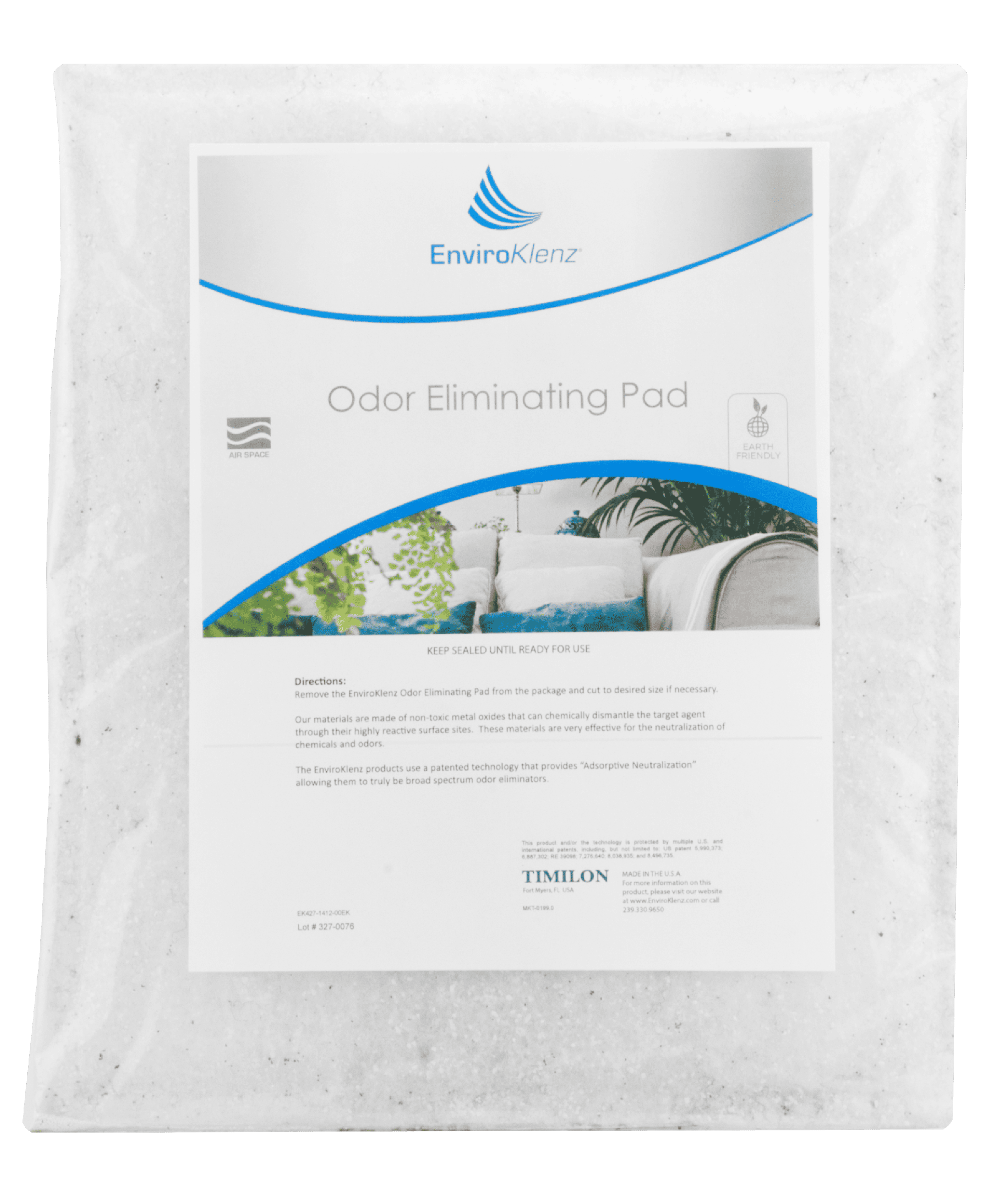
✓ Patented earth mineral technology works to attack VOCs and break them down on a compound level
✓ No chemicals or masking agents
✓ Will not release any chemicals back into your environment
✓ Can be placed in storage containers, shelves, drawers, and cut to use in air filters
Comments
Post a Comment